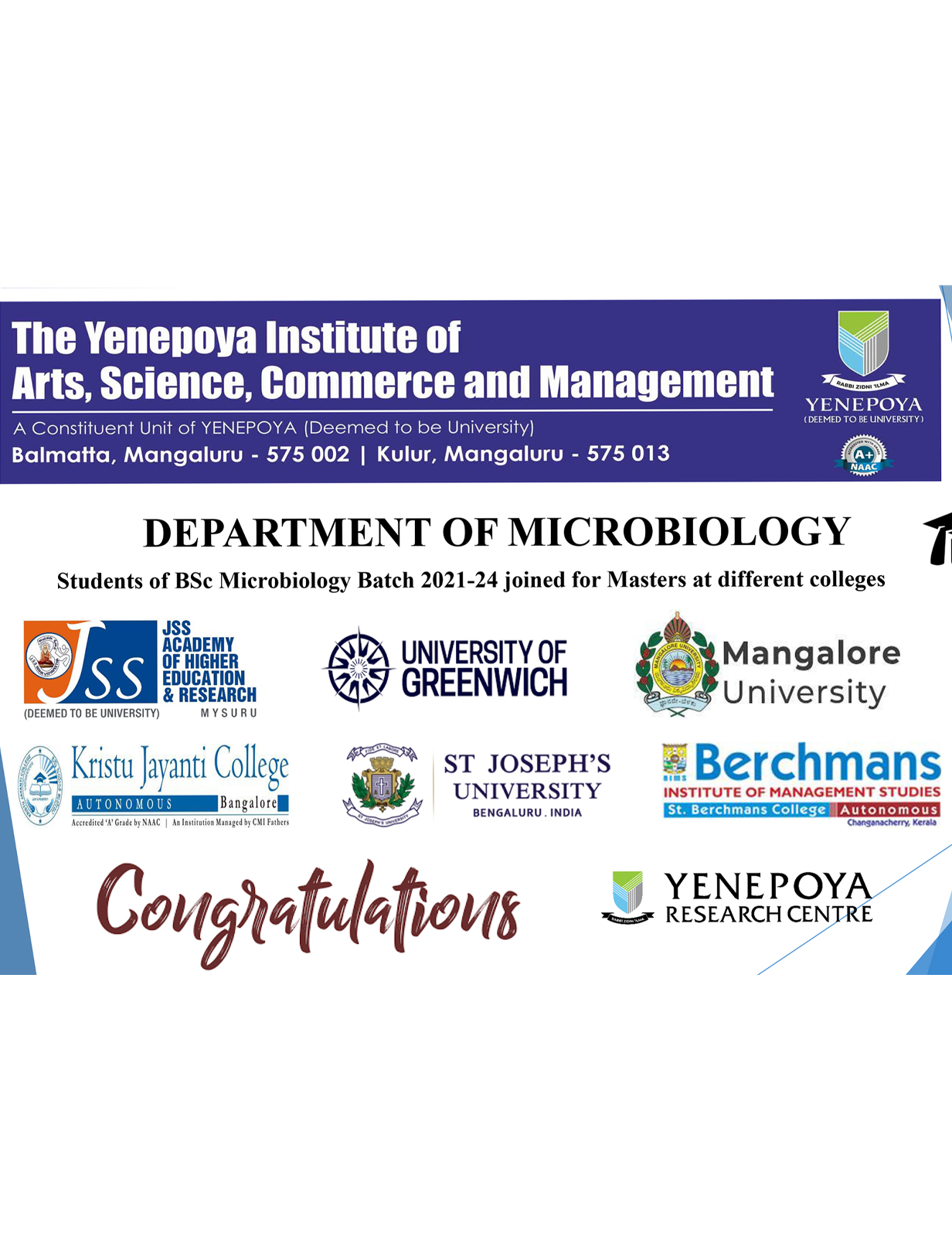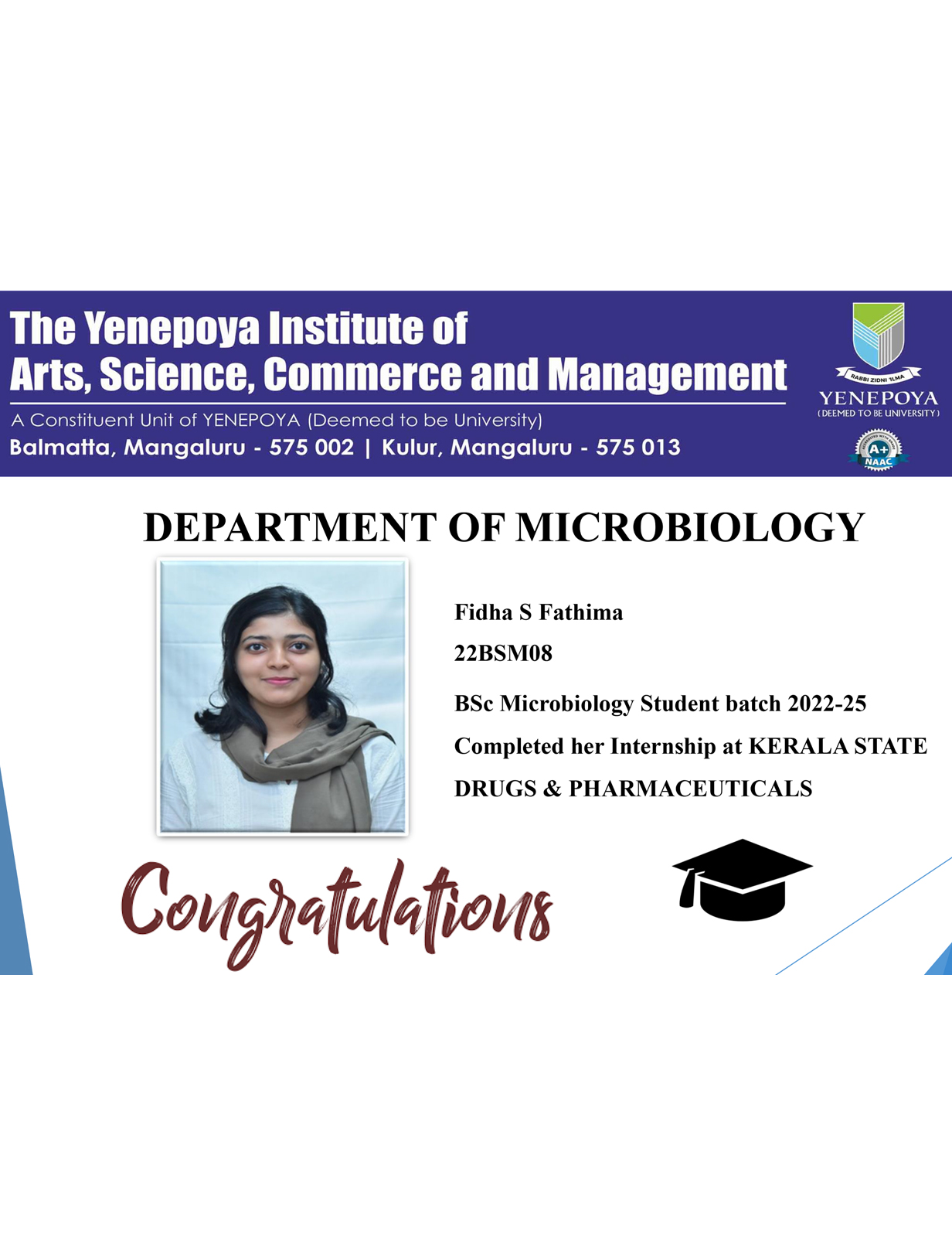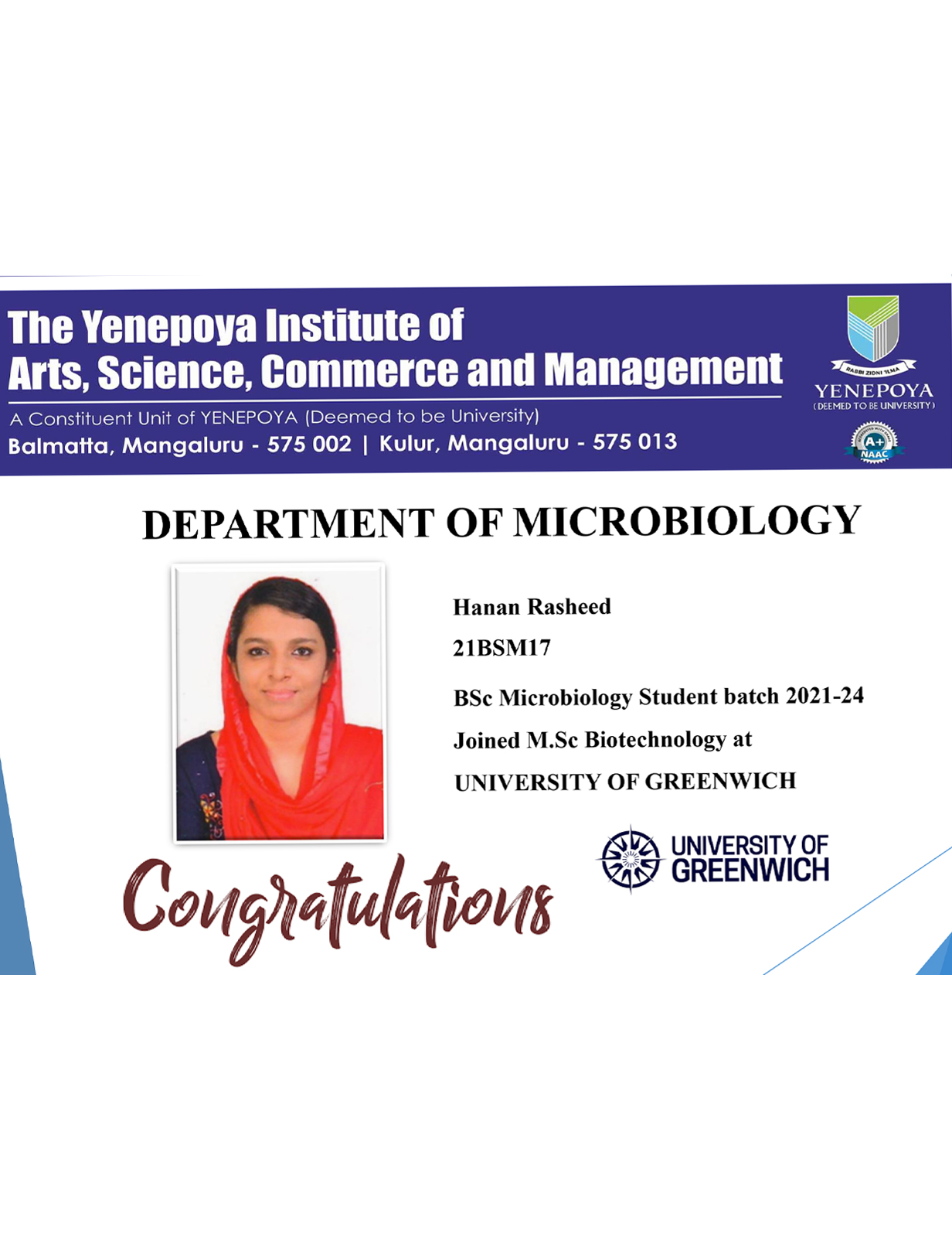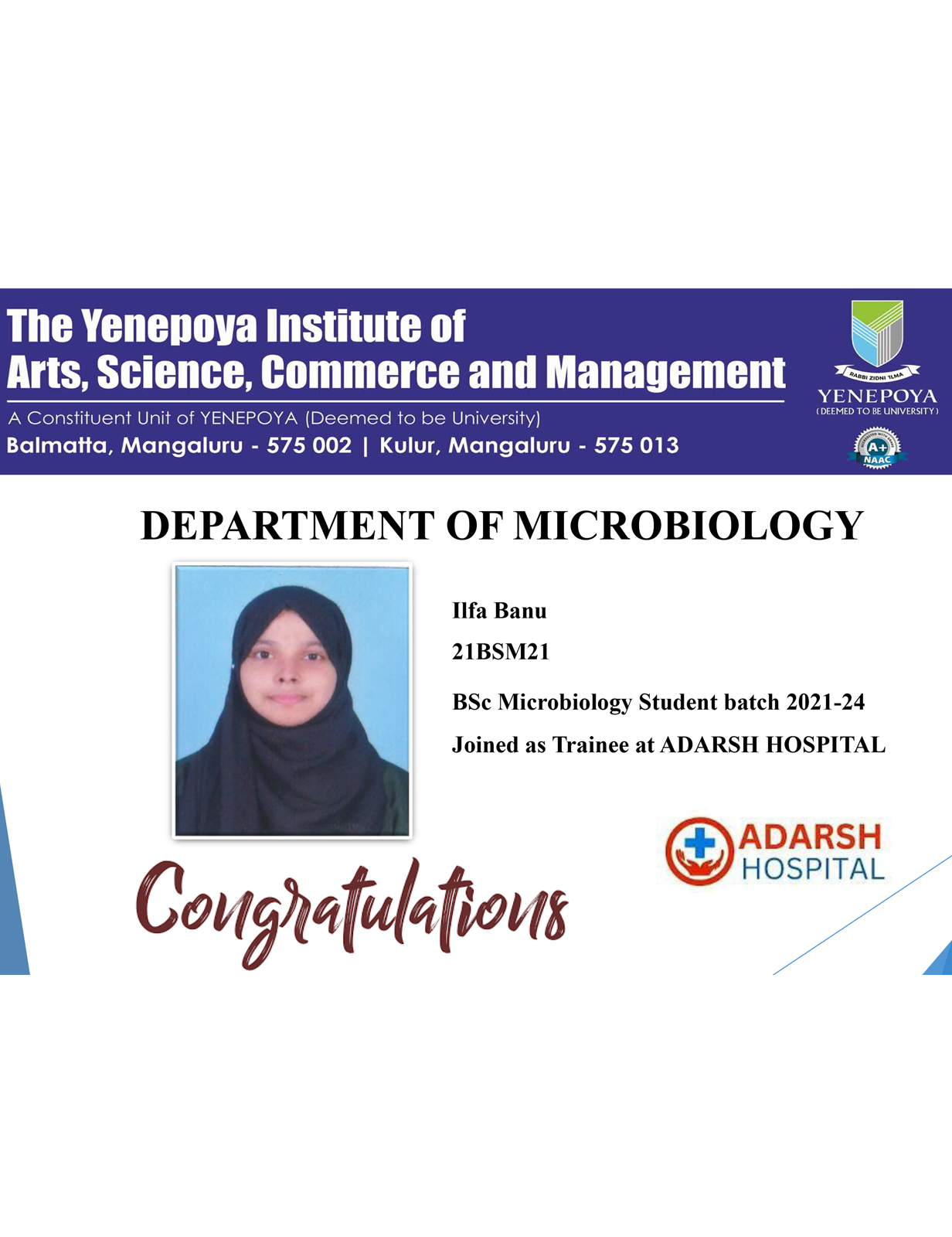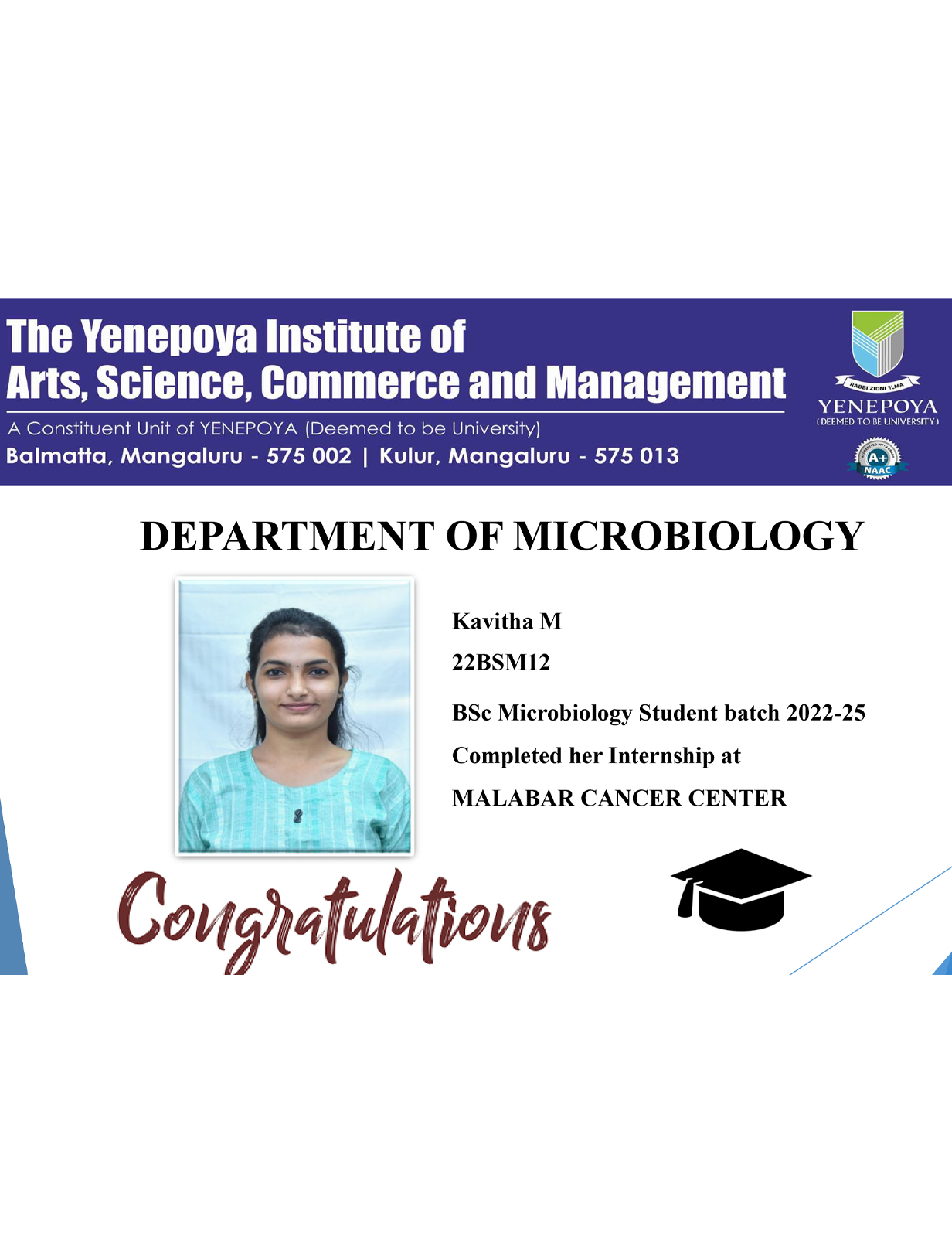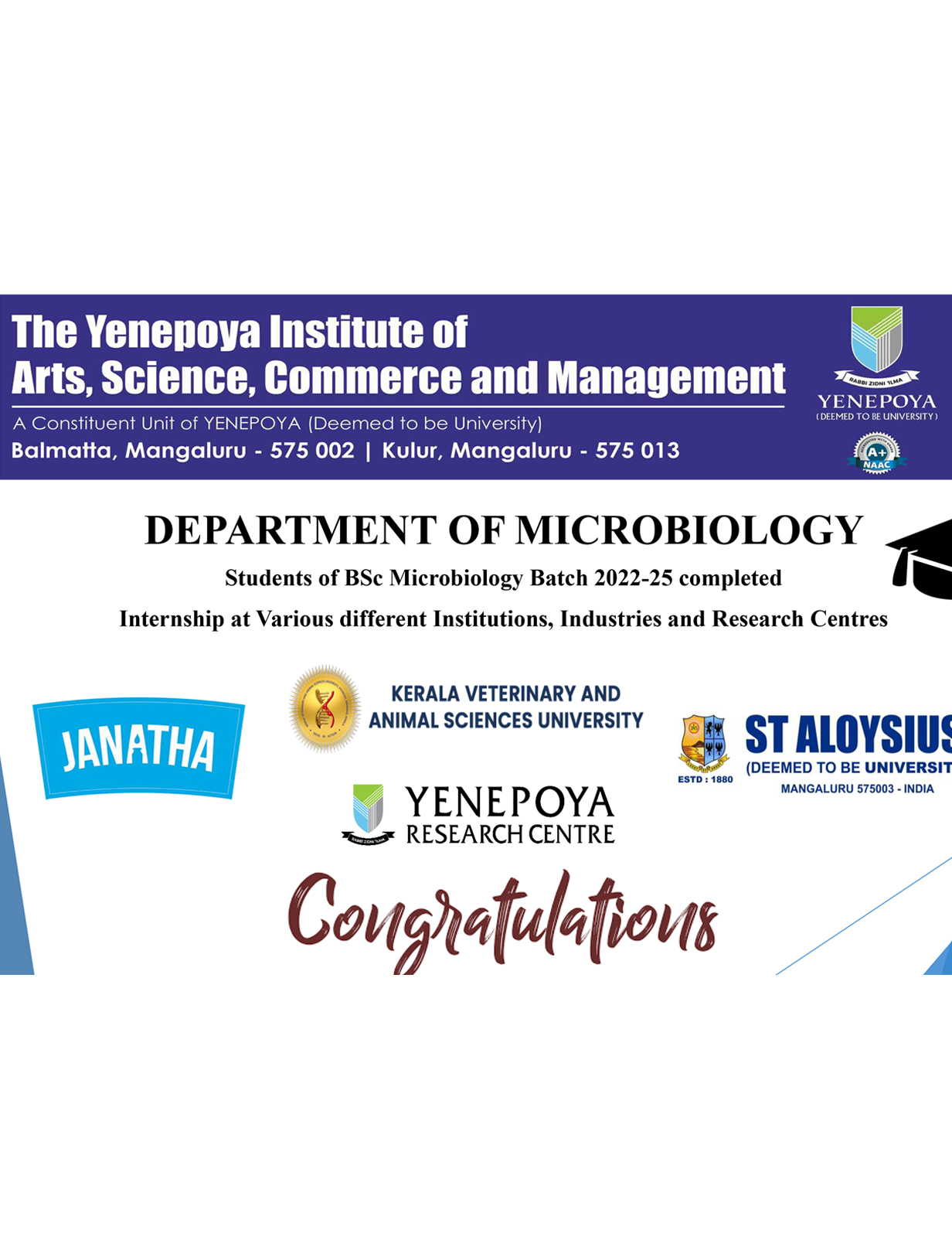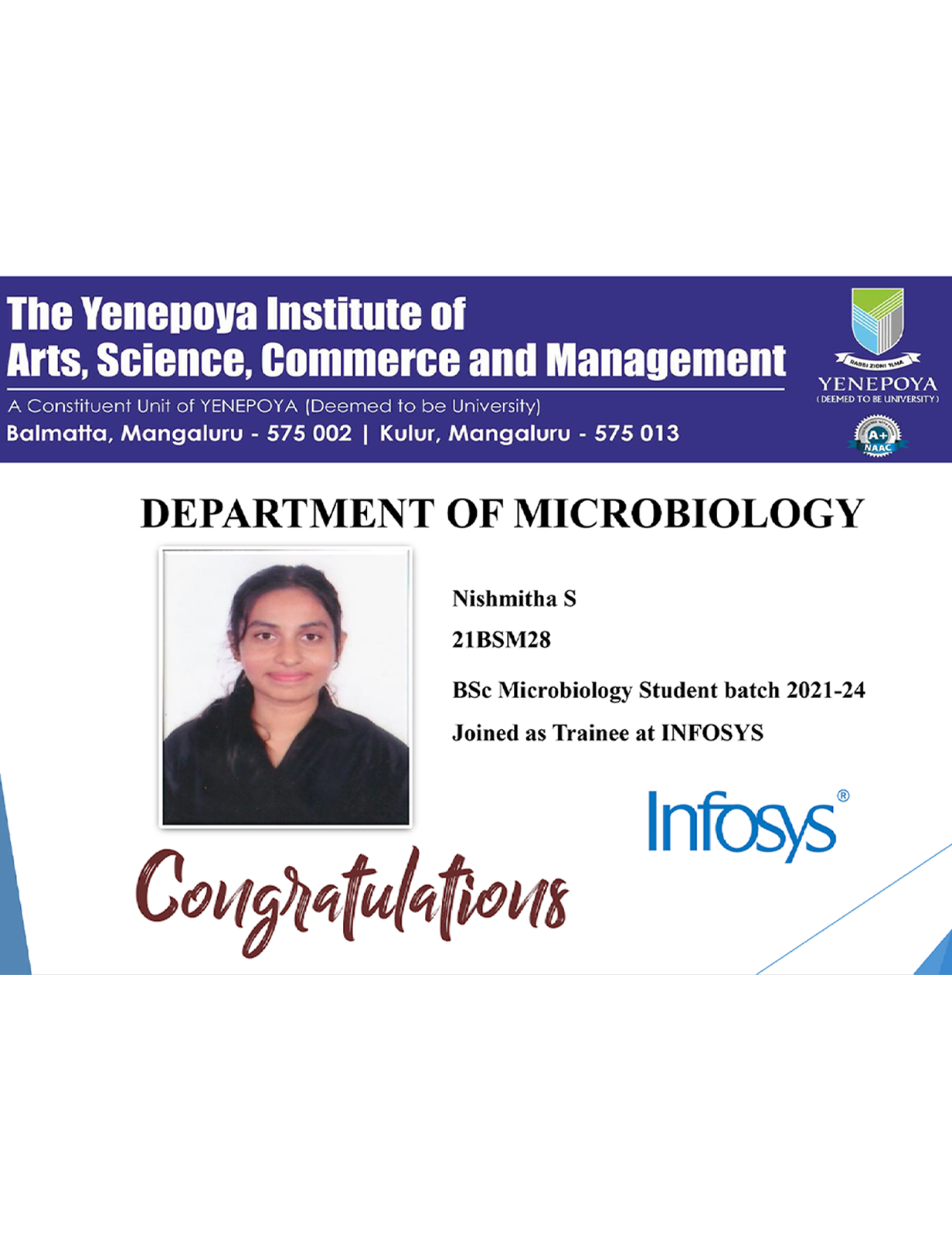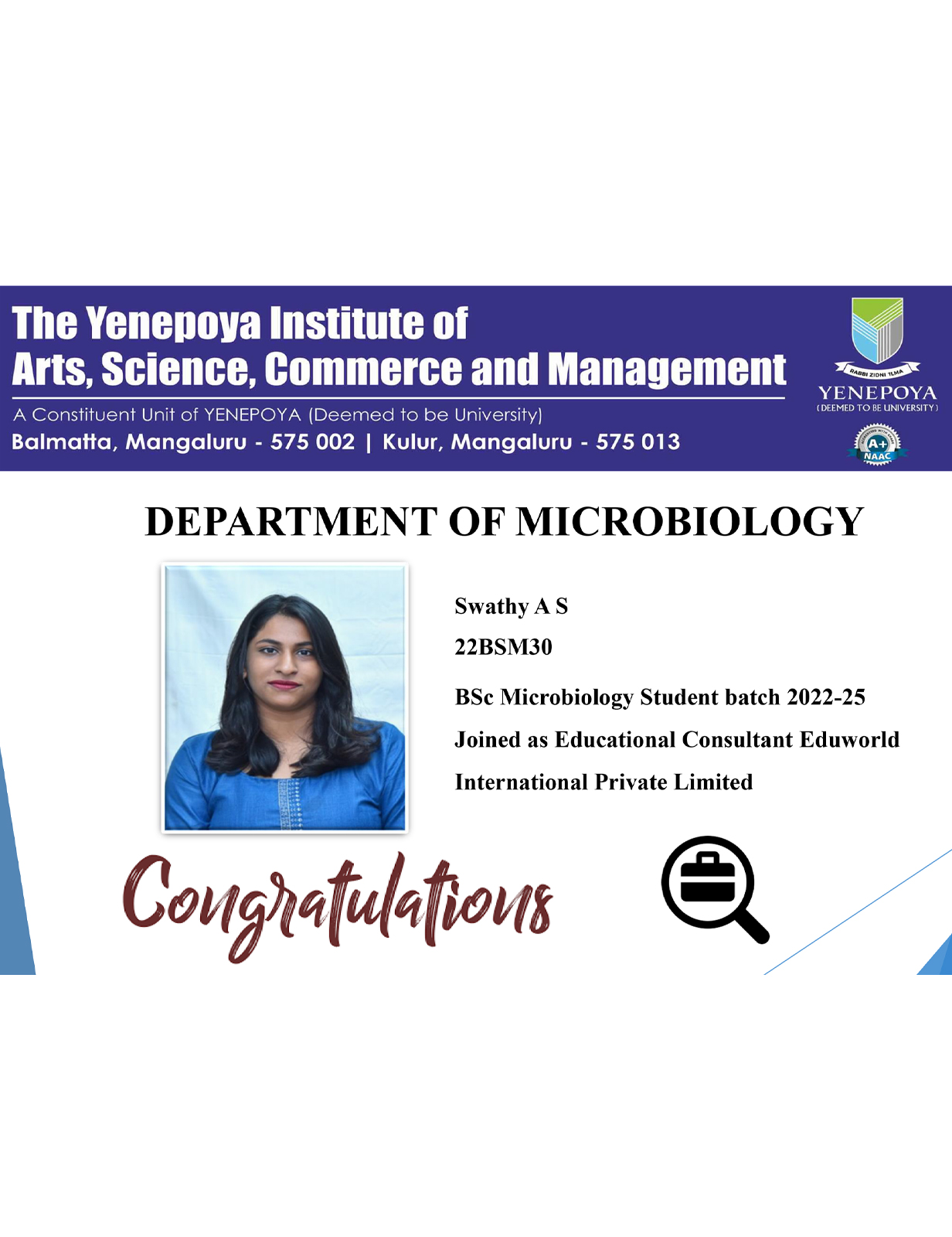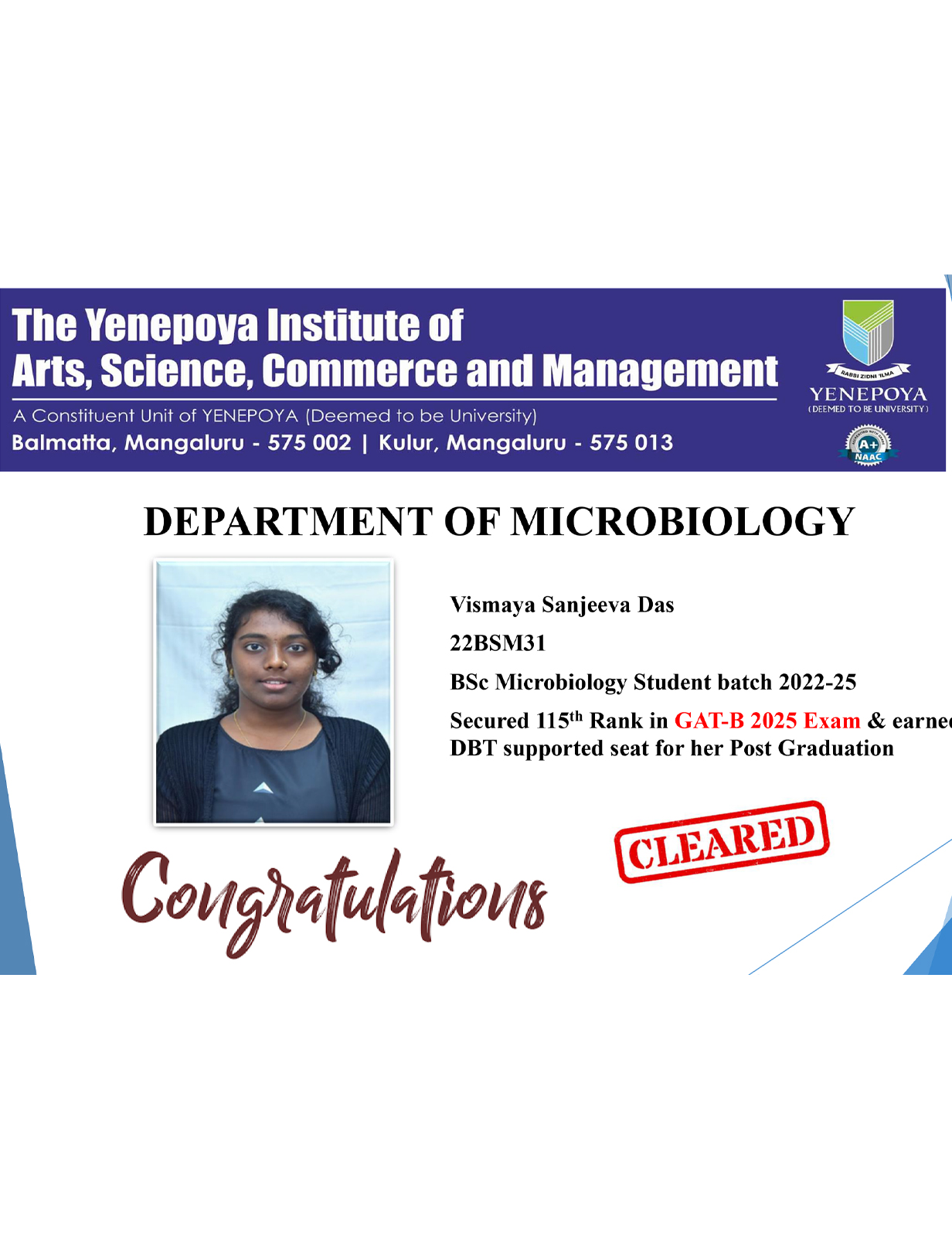B.Sc Microbiology
Duration
3 Years
Scope of the Programme
Microbiology courses are one of the most sought-after courses in the field of biological sciences. The consequences of infectious diseases and the rise of epidemics or pandemics have stressed the role of microbiology in combating them. There is an immediate need for developing novel strategies to address issues related to food production, industrial products of general or specialized applications, and fighting environmental pollution. The science of microbiology in unison with other related subjects is the key to addressing these issues. This B.Sc. Microbiology programme equips the students with theoretical knowledge and practical skills making them competent individuals who can address the aforementioned issues.
Programme Introduction
Microbiology is the study of microorganisms such as viruses, bacteria, fungi, algae, and protozoa. Microbes are ubiquitous in the environment and are innately associated even with the human body. These microbes are involved in human, animal or plant diseases. Their beneficial aspects include their active role in maintaining chemical balance in nature, genetic engineering, pharmaceutical/nutraceutical production, fermentation, food production, etc. This B.Sc. Microbiology programme covers the in-depth aspects of microbiology in all the above areas using teaching and learning methods designed to enhance domain knowledge and critical thinking in students.
Need for the Programme
Microorganisms are involved in diseases of humans, animals and plants. Conversely, they play a crucial role in maintaining health, production of life-saving antibiotics, enzyme production, alcohol fermentation, and the production of several other fermented foods. Microbes are also involved in the recycling of organic and inorganic matter in nature, and the degradation of pollutants. Thus, the science of microbiology has enormous importance in aspects of health, agriculture, environment and industries. Therefore, it is imperative to come up with a B.Sc. Microbiology programme that shapes graduates who are capable of addressing the pressing needs of the aforementioned areas as either industry-ready individuals or students who opt for higher education and research.
Career Outcomes
The B.Sc. Microbiology programme opens avenues of microbiology-related careers requiring general graduate-level aptitude. After graduating with this degree, a student may take up the following job roles among many:
- Microbiologist - In industries like food, beverage, biotechnology and pharmaceuticals.
- Quality control microbiologists in different industries.
- Microbiologist - In hospitals, diagnostic laboratories, agricultural departments, environmental agencies, and research organizations.
- Research assistants in research laboratories.
Students may also proceed in academia and progress to higher education, taking up postgraduate programmes in microbiology or other relevant subjects.
Programme Highlights
This bachelor-level programme of B.Sc. in Microbiology is developed incorporating contents that are required for employability and to facilitate progression into higher education. The self- directed learning component challenges the students to experience the concept of life long learning. The students of this programme will experience various methods for learning the concepts, practical skills, and competencies. The training and learning from field visits and internships provide possibilities for increasing their skills. The courses focusing on soft skills are aimed to prepare the students to incorporate professionalism and teamwork with higher levels of emotional and social empathy.
Programme USP
This B.Sc. Microbiology programme is aligned with the National Education Policy 2020. The programme imparts in-depth knowledge in microbiology and allied subjects such as biochemistry and biotechnology. The programme focuses on employability and progression into higher education. The emphasis is on sharpening the theoretical knowledge and practical skills necessary in industries or academia. The teaching-learning processes in the classroom, laboratory training, exposure to industries, interaction with industry experts, and research projects aid in achieving competency by the students of this programme.
Programme Educational Outcomes
- Equip students with a comprehensive understanding of original microbiological concepts, theories, and techniques.
- Enhance students' critical thinking abilities to analyze scientific literature and current research trends in microbiology.
- Promote awareness of the societal and environmental impacts of microbiology, encouraging students to contribute positively to their communities.
Programme Outcomes
The student graduating with the Degree of B.Sc. Microbiology should be able to acquire the following competencies and skills
- Disciplinary knowledge
- Skills
- Analytical
- Critical thinking
- Problem-solving Research & scientific reasoning
- Reflective thinking
- Attitudes Communication and collaboration
- Lifelong learning
- Moral and ethical awareness
- Leadership
- Teamwork
Hence, the following programme outcomes are defined.
- PO 1 Knowledge Acquisition: Describe systematically and coherently the fundamental concepts in microbial diversity, microbial physiology, microbial metabolism, and cell and molecular biology.
- PO 2 Interdisciplinary Integration: Explain the basic concepts in biochemistry, pharmaceutical chemistry, clinical biochemistry and principles of instruments used for laboratory investigations.
- PO 3 Research and Analytical Skills: Perform experimental laboratory techniques and methods in the areas of microbiology, biotechnology and biochemistry.
- PO 4 Technical Proficiency: Practice the technical skills in various domains of biotechnology.
- PO 5 Laboratory Management: Employ biotechnology processes and products in biosafety, environment safety and quality control approach suitable for industry and research practices.
- PO 6 Ethical Conduct: Demonstrate teamwork, ethical responsibility, societal and environmental impacts of microbiology through innovative approaches.
- PO 7 Collaboration and Communication: Develop critical thinking ability to solve problems related to operational and technical issues about analytical approaches in microbiology.
- PO 8 Application of Microbiology :Optimize the experiments to explore in different fields of microbiology including soil, agricultural, medical microbiology and immunology.

